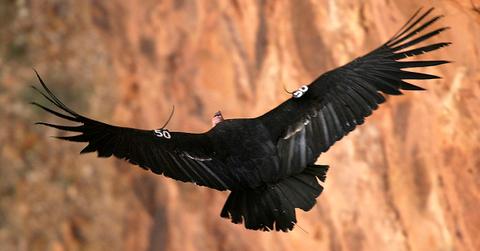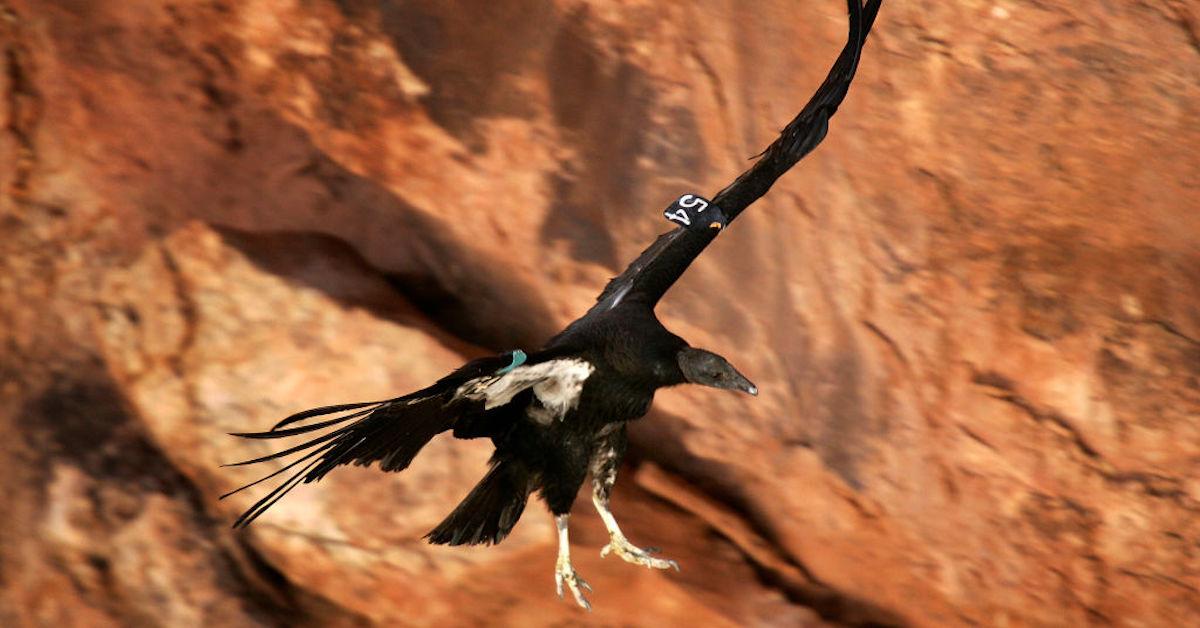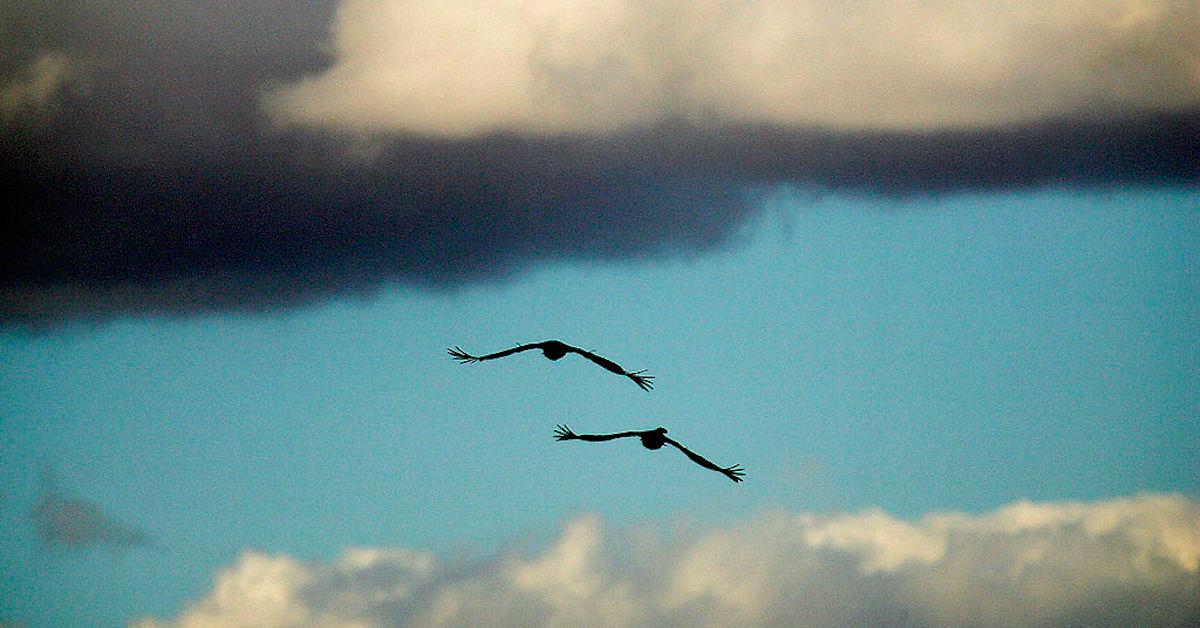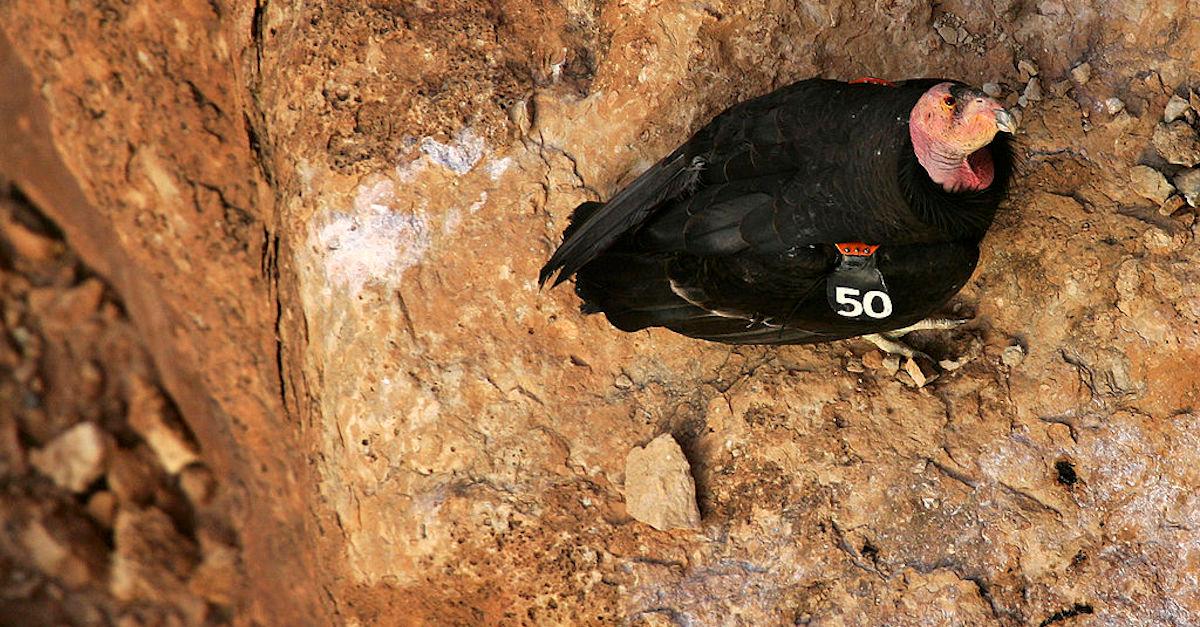Are California Condors Still Endangered? The Predatory Bird Is Making a Comeback
Updated March 29 2021, 5:20 p.m. ET

Although California is often touted as the most biodiverse U.S. state (as per Treehugger), one of the state's most beloved birds, the California condor, had been on the brink of extinction for about 100 years. But recently, that's changed drastically. The California condor population is finally making a much-anticipated comeback, due to strong conservation efforts led by a local native tribe.
"Certainly within a year we hope to have birds in the sky,” said Tiana Williams-Claussen, director of the wildlife department of the Yurok tribe, according to The Associated Press. “Not having him here for 100 years now, we as a people are wounded without having that spirit flying in our skies."

Why is the California condor population endangered?
With a 10-foot wingspan, the California condor is considered to be the largest long-distance soaring land bird in North America. Despite its name, it was originally native to the entire Pacific Northwest, as well as Florida, Texas, and New York, according to People. And although it's now a rarity, the California condor was a common sight to see nationwide thousands of years ago. But by the late 1900s, the population had shrunk significantly.
For the last few centuries, the California condor has been mainly concentrated in California — as per its name — but just barely. Hunters that utilize shotgun bullets are responsible for poisoning many birds with lead, and deforestation and climate change has led to habitat loss, according to The AP. The beloved predatory bird was (and still is) classified as critically endangered, but its population is now regenerating, thanks to conservation efforts led by a local California tribe.

How is the California condor being brought back?
Since 2008, Northern California's Yurok Tribe has dedicated time and money to conservation efforts to revitalize the California condor population, according to a press release. The bird is considered to be a sacred aspect of their cultural landscape, which is why they have led various environmental assessments, conducted contaminant analyses, and made community outreach efforts to reinvigorate the population, with plans to rerelease the predatory bird into the wild.
Last week, the U.S. Fish and Wildlife Service (USFWS), National Park Service (NPS), and Yurok Tribe announced the creation of a release facility for the California condor, to reintroduce them to Redwood National Park and Yurok Ancestral Territory. It will be run by the Northern California Condor Restoration Program, which is a partnership between Redwood National Park and Yurok Tribe. The bird will continue to be protected and listed by the Endangered Species Act for the foreseeable future.
“For the last 20 years, the Yurok Tribe has been actively engaged in the restoration of the rivers, forests and prairies in our ancestral territory. The reintroduction of the condor is one component of this effort to reconstruct the diverse environmental conditions that once existed in our region," said Joseph L. James, Chairman of the Yurok Tribe, as per the press release.

"We are extremely proud of the fact that our future generations will not know a world without prey-go-neesh. We are excited to work with the U.S. Fish and Wildlife Service and Redwood National Park on the final stages of the project and beyond," James added.
Needless to say, this is huge for local tribes, communities, and surrounding ecosystems alike, for the sake of the Golden State's biodiversity.